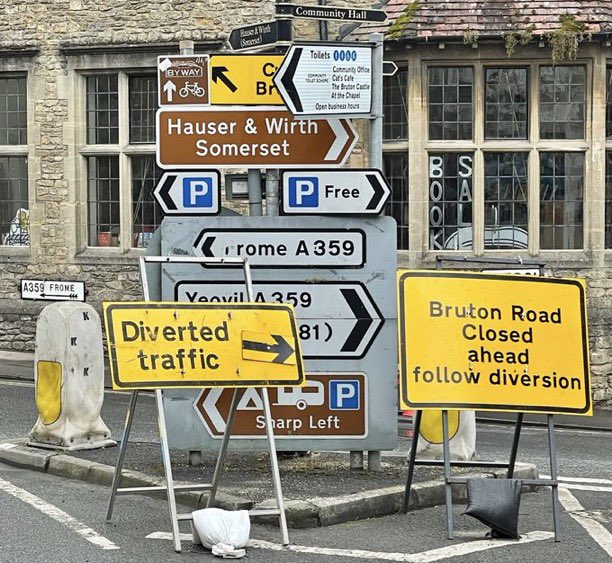
A lost stash of road signs dating from the second world war has been found… somewhere in England.
During WWII, as Britain prepared for an expected German invasion, road signs were removed to confuse and delay the Wehrmacht‘s progress through the southern English countryside on its way to London.
Fortunately, thanks to the skill and superiority of ‘the few’ patrolling the skies above this formerly great nation, the invasion never happened and, consequently, the road signs began to go back up. Now, more than seventy years on, it feels like they didn’t know when to stop.
Göring round in circles
Second only to electricity pylons, road signs are surely the ugliest thing that ever happened to the green and pleasant lands of the United Kingdom (and northern Ireland. And Southern Ireland for that matter.)
It wouldn’t be so bad if the never-ending stream of bright yellow, red, green, & blue signage actually made navigating the highways and byways of the UK easier, but they don’t. How many times have you driven three times around a roundabout desperately trying to decipher which is the correct exit, or swerved into what you believed to be the correct lane two seconds before missing your junction? Frankly, the signs may as well not be there for all the good they do. Removing them would probably have helped, not hindered the Nazis traverse across the counties of Kent and Sussex in 1940.
Multiple nettle stings
Bert Kavanagh (86), a retired ball-bearing polisher from Yeovil, Somerset, last week discovered a lost stash of road signs dating back to the time of the Battle for Britain. Bert was working on his allotment, rummaging through an old shed that had belonged to his geriatric friend, George, who had recently passed away from old age exacerbated by multiple nettle stings. I asked Bert what he found.
“Signs.”
How many?
“Lots.”
How many is lots?
“Loads.”
Not knowing what to do with the informative relics from a bygone, infinitely better version of Britain, Bert decided to wheel the road signs into town in his barrow and reinstate them, randomly, on the first signpost that he came to, paying no heed to actual directions. Having done so, he retired to the Red Lion pub on the corner opposite the new multi-directional signpost he had just created and sat, nursing a glass of ale as he looked out of the window admiring his handy work.
What did you do then, Bert? I asked him.
“Warched people make monkeys of ‘emselves arl a’ternoon. MWAAAAAAHHHH HA HA HA!!!!”
